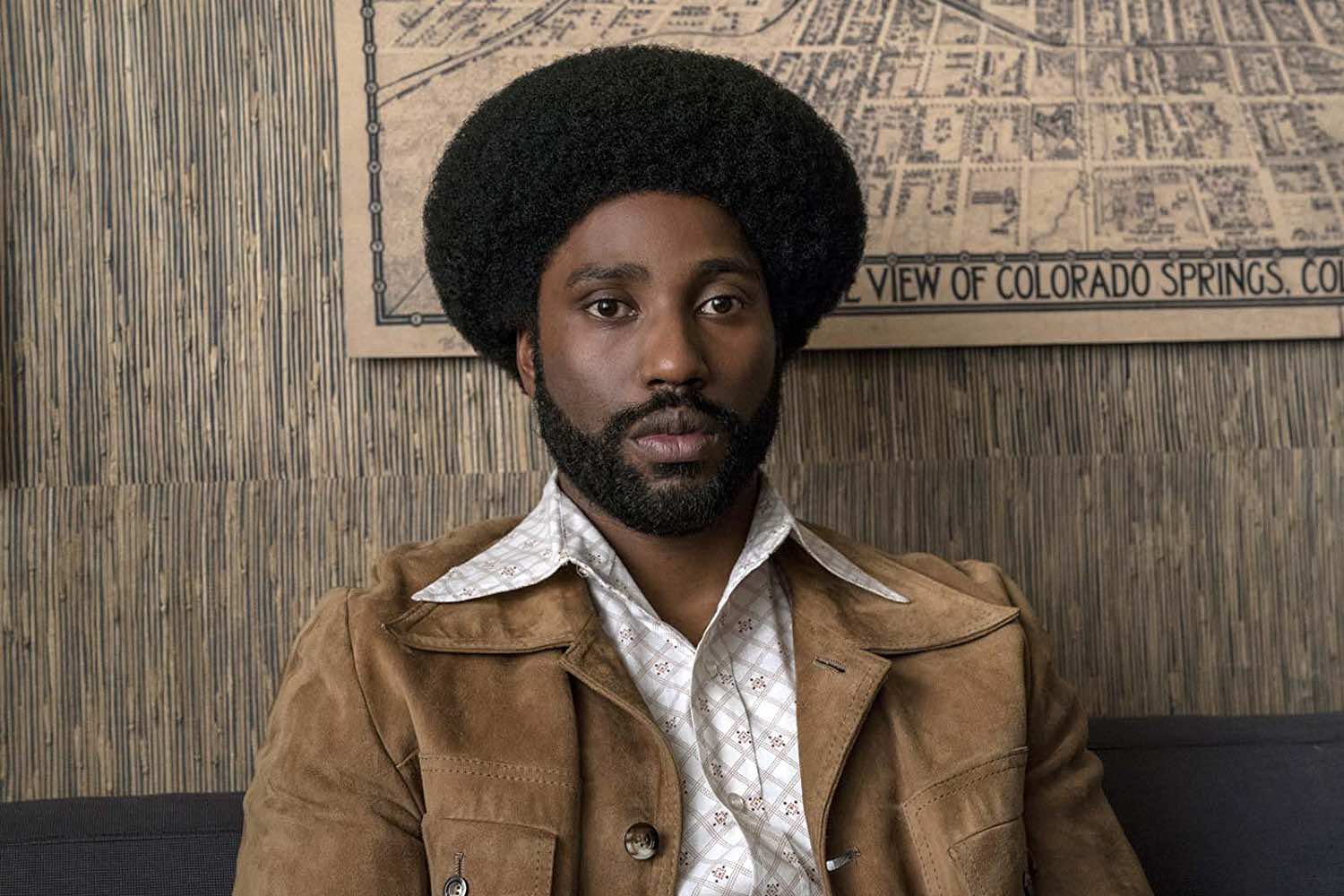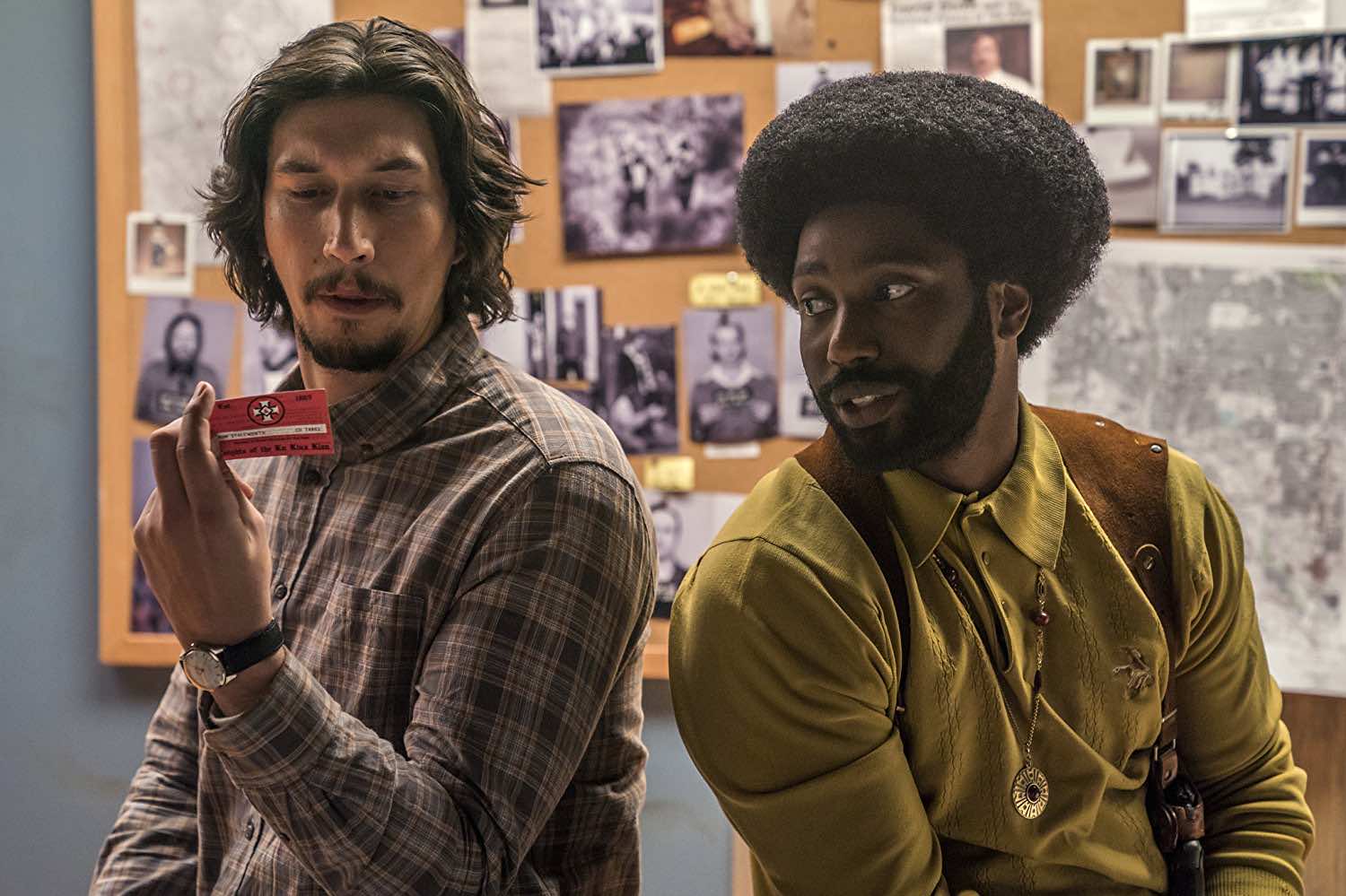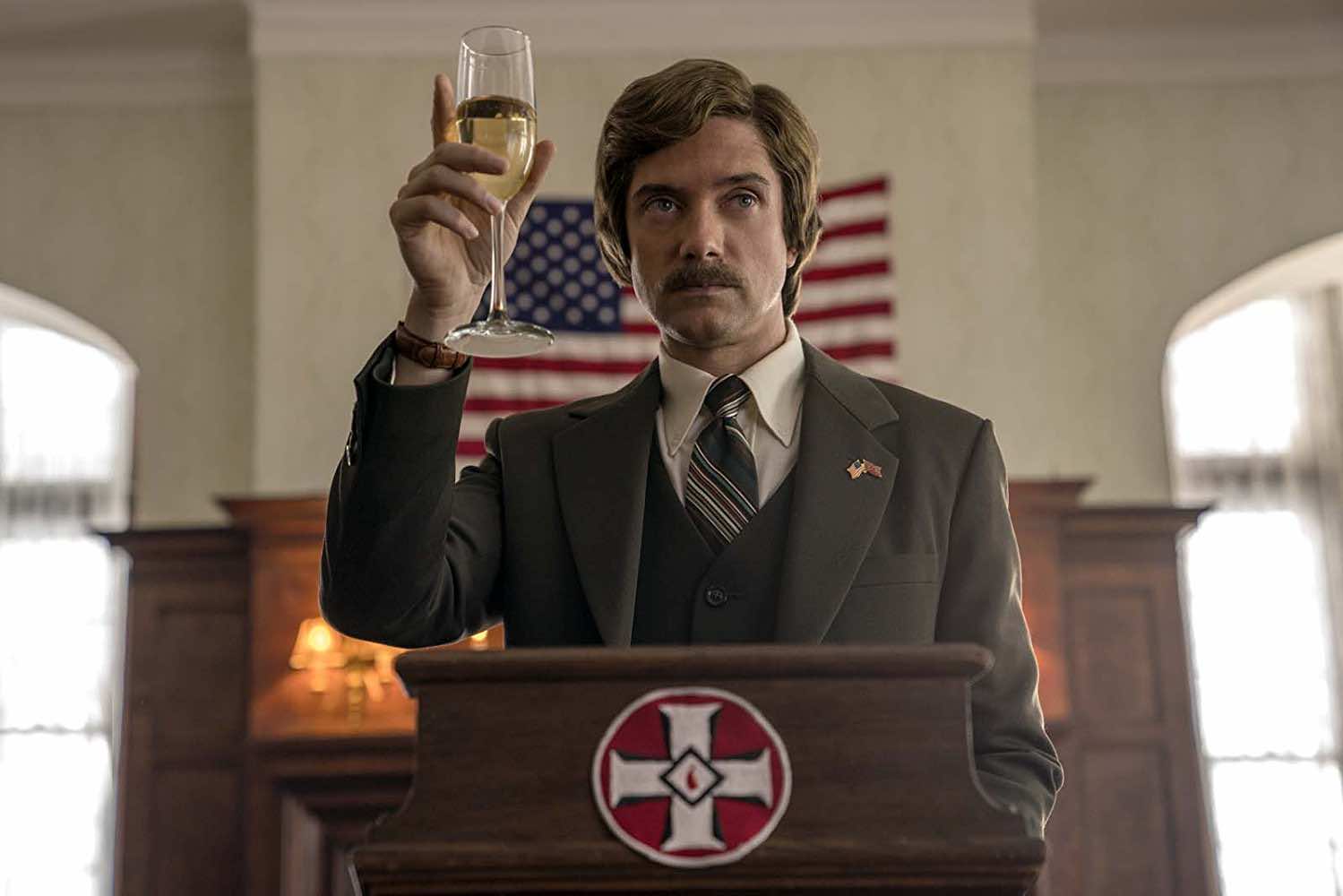
Besides it being a fine film, the reason BlacKkKlansman won the Grand Prix at this year’s Cannes Film Festival is as political a statement as you might imagine. From the origins of these United States to the man voters put in the White House after Barack Obama, what has long gone wrong with America is complicated. This movie finds a way of pointing out these issues by focusing on a specific moment in 1979 and an impressive flashforward to 2017. Writer-director Spike Lee does a dynamic job pointing out a disturbing cycle that plagues U.S. culture with both humor and a startling seriousness during the film’s finale.
The script, which also credits Charlie Wachtel, David Rabinowitz and Kevin Willmott as co-writers, is based on the book The Black Klansman by Ron Stallworth, a retired detective, who, in 1979, became an undercover cop at the Colorado Springs Police Department. One of his first assignments came when he answered a classified ad by someone looking to start a chapter of the Ku Klux Klan in the city. As a rookie undercover officer played impressively in the movie by John David Washington (John David Washington on being a child actor for ‘Uncle Spike’ in ’92 and acting on film for BlacKkKlansman) he made one heck of a rookie mistake: he gave the man on the other side of the rotary phone his real name. In the film version some hijinks ensue when one of his partners, Flip Zimmerman (Adam Driver) has to stand in for Ron during face to face meetings with members of the KKK. One of the complications: Flip is Jewish, and his contact in the KKK, a mean-spirited man named Felix Kendrickson (Jasper Pääkkönen) is suspicious.

The duality of Ron and Flip becomes more complex even as both are presented as two different oppressed minorities. Ron makes a girlfriend Patrice Dumas (Laura Harrier) while attending a speech by Black Panther activist Kwame Ture (Corey Hawkins) for his first assignment as an undercover cop. It’s a scene featuring an incredible montage of varied African-American faces in triptych watching and listening raptly to Ture’s words of empowering all people. It’s similar to a more confrontational moment in Malcolm X, where children stood up in classrooms to yell, “I am Malcolm X.” In BlacKkKlansman, the faces are silent against Ture’s powerful speech. It reveals a softer but no less potent Lee. Though Ron wears a wire to capture words that scared white people so much in the ‘70s, he finds a way to directly diffuse fears in the police department.
As Ron recognizes his identity as a black man who happens to be a cop driven to do good within the laws he has to enforce, Flip goes through a subtle transformation being a non-practicing Jew. That it happens with Ron’s guidance through an investigation driven by personal motivation, is a brilliant touch by Lee because Stallworth never reveals the religion of his partner in the book. What results is an exploration in the importance of identity to a man who only had ambivalence toward the identity he inherited. It twists power from something like Antisemitism, which only encourages someone like Flip to recognize who he is.

Below the buddy cop fun and games in a film that has incredible period quality from costumes to cars to wigs to being shot on 35mm film by Chayse Irvin, not mention a terrific orchestral score by Terence Blanchard that could have accompanied any such movie from the ‘70s, Lee makes a bold statement about identity tensions that never seem to go away. For all of the 21st century’s liberal advancements, it’s still prevalent. When members of the Ku Klux Klan, led by David Duke (a low-key nerdy yet stark performance by Topher Grace), raise their champagne glasses at a banquet to cheer, “America first!” during a gathering at a country club, there’s no doubt what Lee is pointing out with his latest joint: America has a racist president. If you have any doubts, wait for the movie’s heartbreaking final sequence, a stomach turning montage that includes President Trump speaking his own words.
Notably, the sequence is capped off by an unreleased song by a legend of music who united people through popular culture. Prince’s loss was profound for more than music. He united people across race with a style of music that never betrayed his identity even as it was culturally appropriated by white musicians. The bluesy piano and his dynamic vocals for “Mary Don’t You Weep” was recorded around the time he did “How Come U Don’t Call Me Anymore?” one of 1999’s best outtakes released as a B-side in 1983. It features a similarly halting piano but a bigger voice for a traditional song that the Library of Congress describes as “one of the ethereal African American spirituals — a freedom song — born in the anonymity of slavery and drifted across time to bubble up as the need arose.” As the seemingly never-ending vicious cycle of racism persists, has there ever been a time more in need of unity?
BlacKkKlansman runs 135 minutes and is rated R. It is now playing everywhere. There are some independent theaters showing the movie here in South Florida, including O Cinema Wynwood and the Landmark at Merrick Park. For theaters in your area, follow this link. Focus Features invited us to a preview screening for the purpose of this interview.









